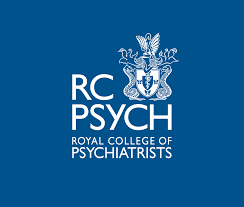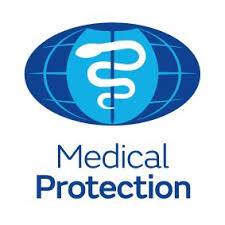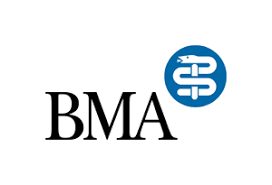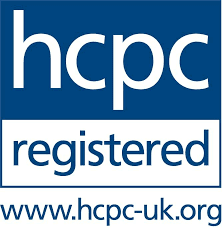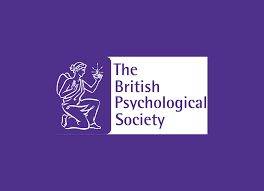ADHD Assessment and Treatment FAQs
We offer comprehensive ADHD services and are here to answer all your questions

Our FAQs
Assessment and Treatment FAQs
We have top online psychiatrists for expert assessment to diagnose ADHD in children, adolescents and adults. Please contact your GP if you would like to be seen within the NHS.
Amphetamines (Elvanse, Adderal) and Methylphenidate (Concerta, Ritalin) ‘stimulants’ are the medicines used to treat ADHD. Research has shown that these are the most effective for ADHD in children and adolescents. They can reduce ADHD symptoms in majority of the children and adults.
Stimulant medication is works by altering the availability of brain chemicals or neurotransmitters including dopamine and noradrenaline, in regions of the brain involved in behavioural inhibition, impulse control, attention and working memory. The precise mode of action is not fully understood.
ADHD medication has to be prescribed (medical doctors) by a specialist psychiatrists in the UK. If your GP or therapist or psychologist suspects a diagnosis of ADHD, they may be able to refer you to a psychiatrist within the NHS or privately.
Stimulant medication is works by altering the availability of brain chemicals or neurotransmitters including dopamine and noradrenaline, in regions of the brain involved in behavioural inhibition, impulse control, attention and working memory. The precise mode of action is not fully understood.
The safety of stimulant medications on the developing baby during pregnancy is unknown because pregnant women are often excluded from clinical trials that study the effects of medication on them. Stimulant medication, such as amphetamines like Elvanse or methylphenidates like Concerta, Ritalin, are considered “Category C” medications. This means that animal studies showed negative effects when exposed to these drugs, but adequate and well-controlled studies in humans have not been conducted and therefore did not confirm these conclusions.
A Category C label also means that the benefits of using these medications during pregnancy may be acceptable despite its potential risks.
You will need to carry a letter or your prescription whilst travelling with ADHD stimulant medication.
At Oaktree, we can have your stimulant medication delivered to your home address. However, due process of writing and sending the physical prescriptions to our online pharmacy partners is completed by our doctors. It would therefore take a maximum of 5 working days after you see your doctor to for the medication to be delivered.
As with all the complex mental health conditions, ADHD requires a biological, psychological and sociological approach, in less technical terms that would be medication, talking therapies and social interventions and signposting to the appropriate organisations that can assist with the recovery process. These may include the following:
- Medication
- Parent training
- Social Skills training
- Career Counselling
- Behavioural therapy
- Educational support from work and school/ university
- Education regarding ADHD
ADHD Medication
There are 5 types of medicine licensed for the treatment of ADHD:
Stimulant Medication
- Methylphenidate- Concerta/ Ritalin/ Medikinet/ Xaggitin
- Lisdexamfetamine- Elvanse/ Vyvanse
- Dexamfetamine Sulfate
Non-Stimulant Medication
- Atomoxetine
- Guanfacine
Although these medicines are not a permanent cure for ADHD but do help with the symptoms such as lack of focus, higher ability to complete tasks, making more considered and less impulsive decisions, feel calmer with clearer thinking, and learn and practise new skills. Some medicines need to be taken every day, but some can be taken just on school days. Treatment breaks are occasionally recommended to assess whether the medicine is still needed.
Many measures have been suggested that may reduce ADHD symptoms without medication. Some of them can be listed as follows:
- Relaxation techniques
- Exercise
- Behavioural therapy
- Cognitive-behavioural therapy
- Meditation
- Healthy sleep
It is often hard to control negative behaviours in children with ADHD with their inability to sit still, focus on any task or finish it, and control their reactions and behaviour. You may find the following steps useful:
- Give clear and effective instructions
- Use time-outs when needed
- Give positive attention for good behaviours
- Praise good work and behaviour
- Work with and heed to professional advice including teachers, school counsellors, SENCO, educational psychologists or psychiatrists
General FAQs
ADHD is a developmental disorder which means that its features are present from early childhood. ADHD affects a person’s ability to concentrate, stay still, make considered decisions, organise life at home and work. It can be disabling and has a negative impact on all aspects of functioning.
ADHD is diagnosed by semi-structured interview to establish symptoms and signs that are listed as diagnostic, in the International Code of Diseases (ICD) and Diagnostic and Statistical Manual of Mental Disorders (DSM) by an ADHD expert psychiatrist.
You and someone close to you who knows you well, will be required to complete some questionnaires to support and further confirm the diagnosis.
A medically trained psychiatrist in further specific training in ADHD assessment and treatment will carry out your diagnostic assessment will see you.
Yes, all our consultant psychiatrists are medically trained doctors and have years of experience of assessing, diagnosing and treating ADHD and other mental disorders.
Yes, we provide a detailed assessment report, shared with your GP within 5 working days of the assessment.
Yes, we can see you online throughout England and in person (face to face) in our ADHD clinic in Birmingham and St Albans (20 minutes train ride from Central London).
ADHD Medication controls your symptoms and is not curative. You will need to take it in the long term (like medication for any chronic conditions like high blood pressure) for the treatment to be effective.
Once your ADHD medication is stabilised, your consultant psychiatrist will write about your progress and medication to your GP surgery and request a ‘Shared care Agreement’. This means that, if accepted by the GP, you will be able to receive you medication prescriptions and physical health monitoring from the GP (through the NHS) and see our psychiatrist twice every year for follow ups.
This removes the financial burden of you having to fund more frequent follow up appointments with us and paying for the medication privately. Unfortunately, some GPs do not accept these agreements with private healthcare providers. We are then able to offer you shared care agreement with our partner GP.
Are your questions still unanswered?
Call us and chat with our friendly knowledgeable administrative staff or send an email through the contact form below. We will do our best to respond quickly and answer all of your questions.

